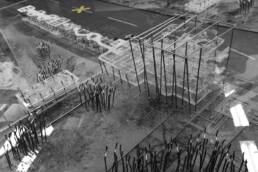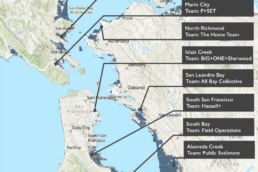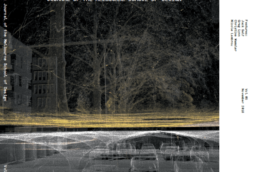California Centerfor Ethics and Policy
The Center's mission is to foster engaged and informed dialogue concerning ethics and policy challenges where California has the opportunity to exercise national or global leadership, thus helping California and other regions identify and implement reasoned, evidence-based solutions to these common challenges.
Nicole Lambrou was selected as the Faculty Fellow for the academic year 2021-22 to pursue research and teaching related to policy and ethics around California's Climate Crisis.
Roundtable Discussions
CCEP will host four roundtable discussions in the Spring of 2022. Researchers and practitioners will come together to discuss the equity implications of planning for wildfires, water, air pollution mitigation measures, and soil.
Seminar: Climate Justice and Environmental Design for California
This course explores the scientific, economic, cultural, and ecological aspects of climate change
at multiple scales and through the lens of climate justice, with a specific focus on California
communities and landscapes. It provides an overview of conceptual and methodological
frameworks in the survey and design of the built environment, and further considers adapta6on
strategies in communities within urban regions. The objective of the course is to develop each
student’s ability to analyze and assess complex urban spaces, and to respond to those spaces
through design and policy proposals that are aligned with community needs, desires, and visions.
Students will develop concepts and proposals for new approaches to climate justice and
environmental design, from policy guidelines and physical design strategies to avenues for
implementation and funding, with a special emphasis on how climate change impacts BIPOC
communities. Students will explore, analyze, and propose urban transformations that allow
communities to adapt to present and future climate risks while engaging with the complex nature
of climate justice. The course focuses on the relationship between the climate risks and
vulnerabilities at the neighborhood scale and the larger urban systems that those climate-related
issues are embedded in. Within this context, students will engage with and assess policy,
planning, and design opportunities and challenges in partnership with non-profit community
organizations who work at the intersection of social and environmental justice.









